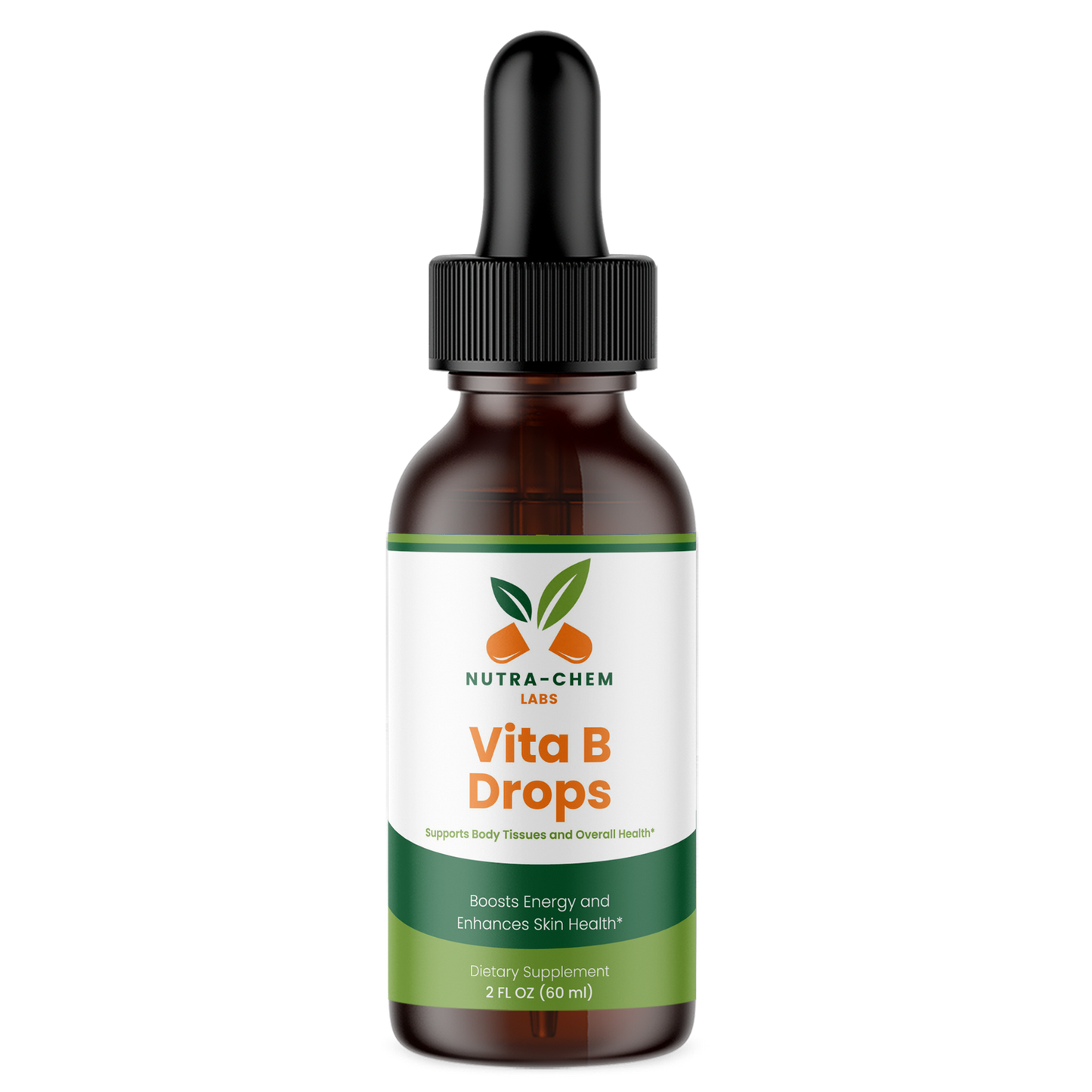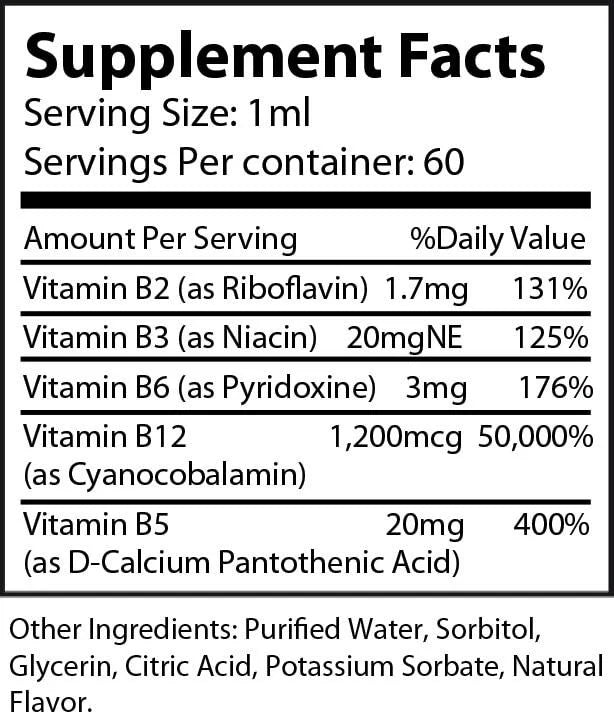- Description
- Key Ingredients & Benefits
- Usage & Directions
- Quality Standards
- Warnings
- Sources
A premium B-vitamin formula designed to promote increased energy, cardiovascular health, metabolic support, digestive health, immune function, and cognitive performance. Leveraging the latest scientific research, this supplement includes high-quality ingredients, ensuring superior efficacy and purity.
- Vitamin B12: Acts as a powerful antioxidant, supports brain and nervous system health, and may help prevent anemia and other B12 deficiency diseases.
- Vitamin B6: Essential for energy metabolism, immune and cardiovascular health, and blood sugar regulation.
- Vitamin B5 (Pantothenic Acid): Crucial for energy production, cellular repair, cognitive health, and fat metabolism.
- Vitamin B2 (Riboflavin): Aids in red blood cell formation, energy production, and activation of other B vitamins.
- Vitamin B3 (Niacin): Supports cardiovascular health, aids in inflammatory response regulation and cognitive health, and helps protect against several diseases, including certain cancers.
Shake well before use. Adults should place one full dropper (1 mL) in the mouth daily to support energy metabolism and maintain nervous tissue health.
Vita B Drops exceed other formulas by using third-party-tested ingredients free from heavy metals and fillers, unlike some supplements that use low-quality sources potentially containing impurities.
Made in the USA, Vita B Drops undergo rigorous third-party testing, GMP certification, and production in an FDA-registered facility, achieving standards that only 1% of the market can match.
-*These statements have not been evaluated by the Food and Drug Administration. This product is not intended to diagnose, treat, cure, or prevent any disease. -Tamper Seal: Use only if the seal is intact. Consult your health care practitioner if you are pregnant or nursing, taking medications, or have a medical condition, before taking this or any other product. -Store in a cool, dry place. Keep out of reach of children.
Gasperi, V., Sibilano, M., Savini, I., & Catani, M. V. (2019). Niacin in the Central Nervous System: An Update of Biological Aspects and Clinical Applications. International journal of molecular sciences , 20 (4), 974. https://doi.org/10.3390/ijms20040974
Gentilcore D. (2016). Louis Sambon and the Clash of Pellagra Etiologies in Italy and the United States, 1905-14. Journal of the history of medicine and allied sciences , 71 (1), 19–42. https://doi.org/10.1093/jhmas/jrv002
Kirkland J. B. (2009). Niacin status and treatment-related leukemogenesis. Molecular cancer therapeutics , 8 (4), 725–732. https://doi.org/10.1158/1535-7163.MCT-09-0042
Hoskin, P., Rojas, A., & Saunders, M. (2009). Accelerated radiotherapy, carbogen, and nicotinamide (ARCON) in the treatment of advanced bladder cancer: mature results of a Phase II nonrandomized study. International journal of radiation oncology, biology, physics , 73 (5), 1425–1431. https://doi.org/10.1016/j.ijrobp.2008.06.1950
38. Ueland, P. M., McCann, A., Midttun, Ø., & Ulvik, A. (2017). Inflammation, vitamin B6 and related pathways. Molecular aspects of medicine , 53 , 10–27. https://doi.org/10.1016/j.mam.2016.08.001
39. Bird R. P. (2018). The Emerging Role of Vitamin B6 in Inflammation and Carcinogenesis. Advances in food and nutrition research , 83 , 151–194. https://doi.org/10.1016/bs.afnr.2017.11.004
40. Mascolo, E., & Vernì, F. (2020). Vitamin B6 and Diabetes: Relationship and Molecular Mechanisms. International journal of molecular sciences , 21 (10), 3669. https://doi.org/10.3390/ijms21103669
51. van de Lagemaat, E. E., de Groot, L., & van den Heuvel, E. (2019). Vitamin B12 in Relation to Oxidative Stress: A Systematic Review. Nutrients , 11 (2), 482. https://doi.org/10.3390/nu11020482
52. Romain, M., Sviri, S., Linton, D. M., Stav, I., & van Heerden, P. V. (2016). The role of Vitamin B12 in the critically ill--a review. Anaesthesia and intensive care , 44 (4), 447–452. https://doi.org/10.1177/0310057X1604400410
53. Shipton, M. J., & Thachil, J. (2015). Vitamin B12 deficiency - A 21st century perspective . Clinical medicine (London, England) , 15 (2), 145–150. https://doi.org/10.7861/clinmedicine.15-2-145




